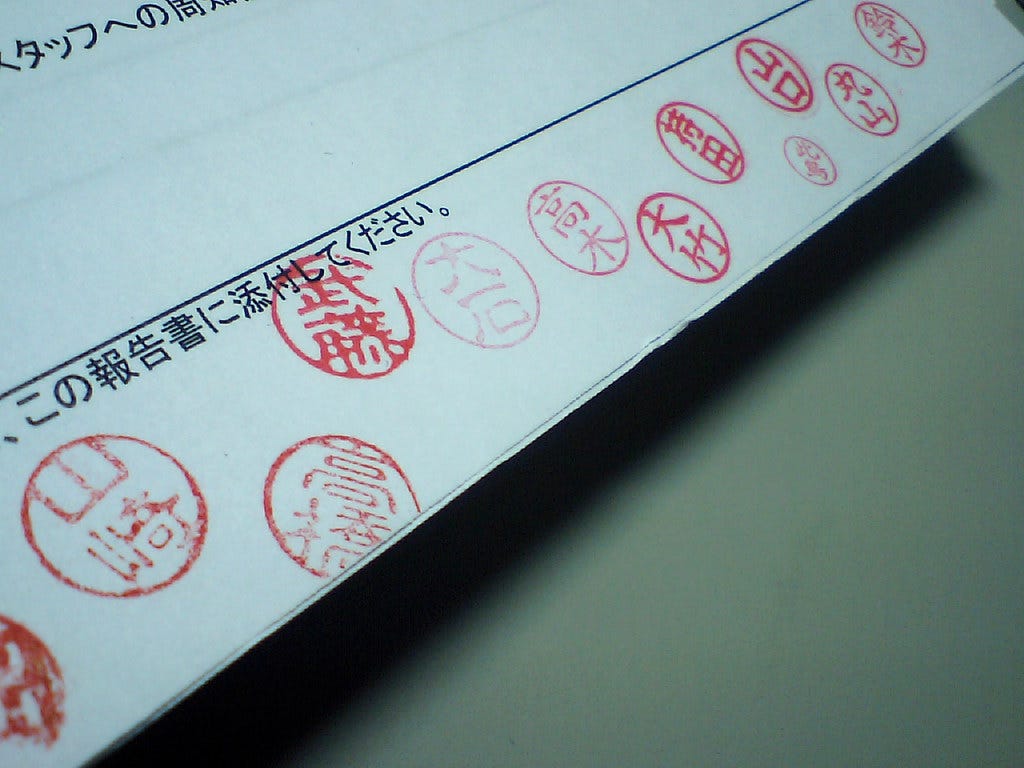01 • Waka first time at the bank with a wooden stamp. across the counter an impatient clerk. my name in red ink. 02 • Gogyohka in june i learned how to bow in apology when confused 03 • Boketto the bone has not yet healed so like a footsore tourist i limp toward the scheduled afternoon train full briefcase in hand i do not feel insulted by osaka:s inside joke— gaijin card
In Japan, I needed two essential items before I could make any legal decisions or even buy a phone. The hanko (identity signature stamp) and my gaijin card. In its full form, 外国人(gaikokujin) means “outside country person.” 外人(gaijin) means “foreigner” or – literally – “outsider” and is less polite, though not meant as an insult in most cases. I always thought it was funny when I:d1 go into a convenience store and overhear one of the clerks say “gaijin” to the other. I was an outsider inside their store with an outsider card inside my wallet.
Note on 01: My name was a combination of the kanji symbols for “maku” and “riku” and I forget which symbols they were. There are a few different ones that all carry different meanings for each of those syllable combinations.
Note on 03: I broke a bone in my foot playing basketball 6 hours before leaving for my flight to Osaka.

When a colon takes the place of an apostrophe in this series, it:s a reference to the : key being in the spot on a Japanese keyboard where the ‘ key would be on an English keyboard.





Each one is compelling, Mark! And I love your extra bits of explanation
Wonderful! Really like these a lot. All of them resonate, and have that lovely sense of the unsaid layered into the said. The second especially. And nicely synchronous as I just posted a long write-up on the history of waka/tanka too :-)